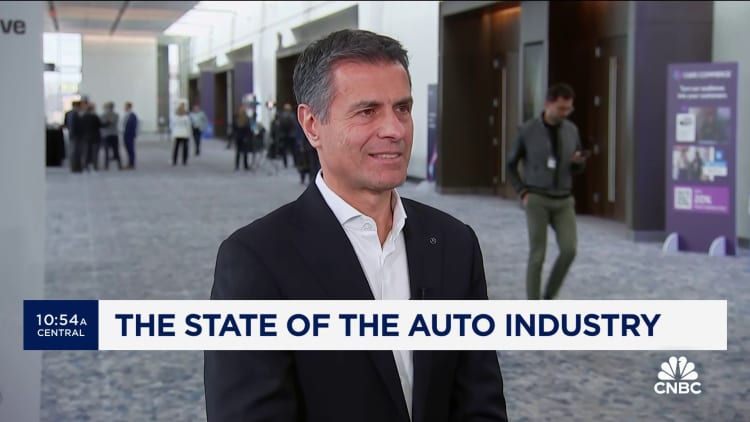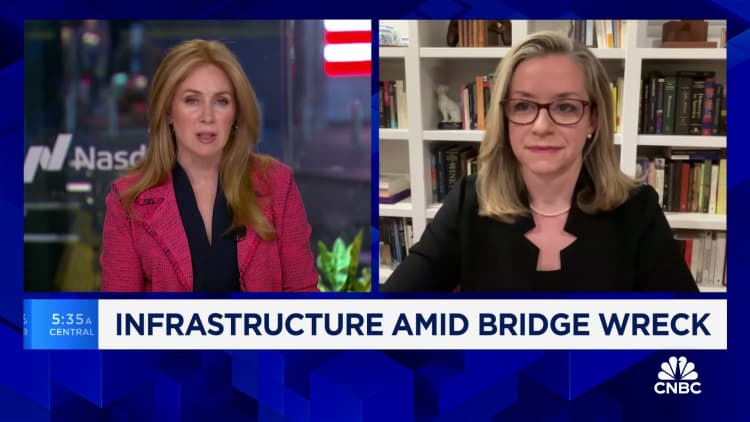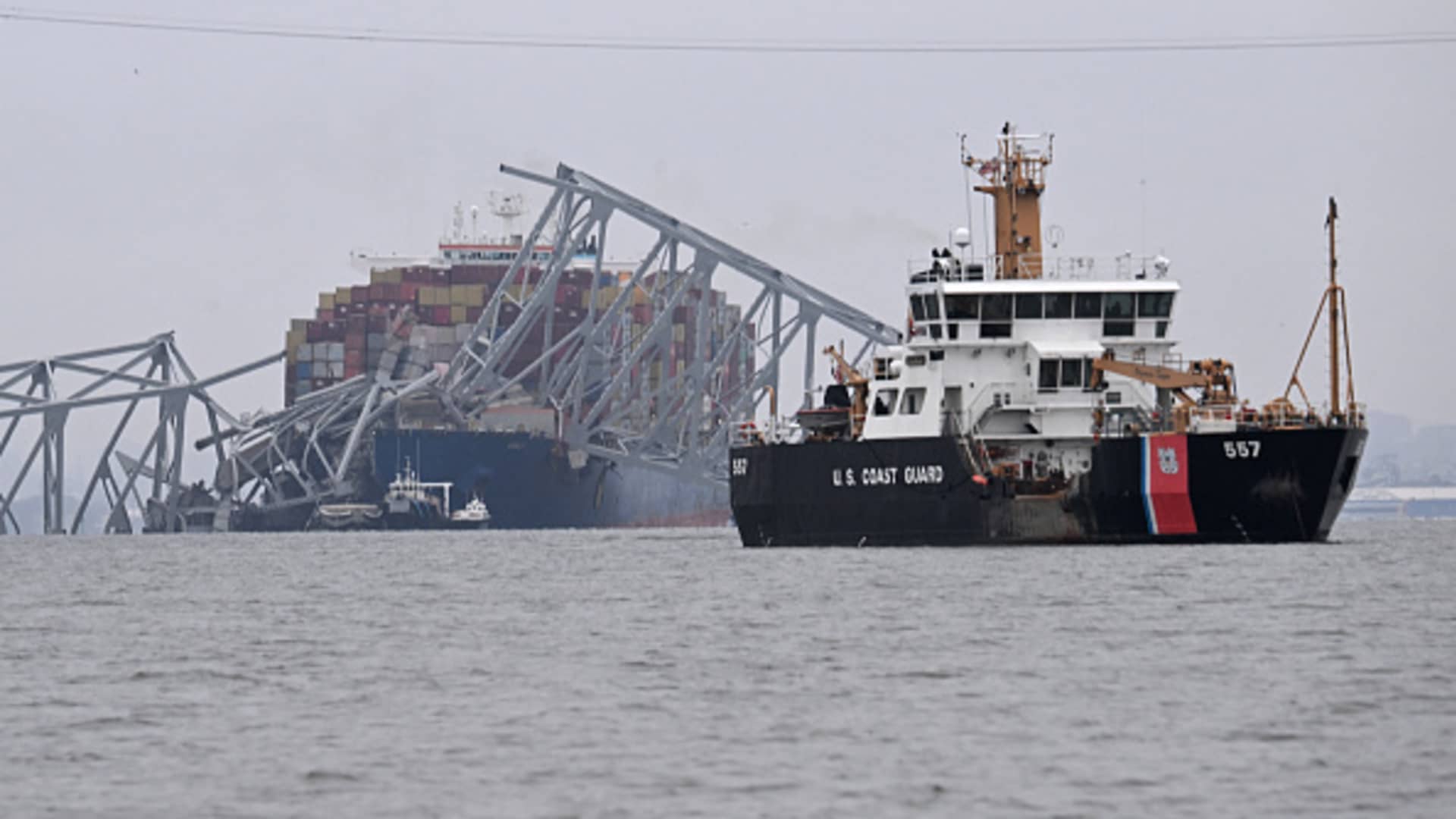The remains of the Francis Scott Key Bridge on March 26, 2024 in Baltimore.
Michael A. McCoy | The Washington Post | Getty Images
The Baltimore bridge collapse has prompted carmakers to assess operations after the closure of the busiest U.S. auto port. Many do not expect major disruptions so far.
In a dramatic scene, a cargo ship hit the Francis Scott Key Bridge in the early hours of Tuesday morning, causing it to crumple into the water almost immediately. Six people who had been working on the bridge were presumed dead on Wednesday, after rescuers failed to find them.
The Port of Baltimore, the 11th largest port in the U.S. and its busiest for autos and light trucks, has been closed until further notice. Logistics companies immediately began rushing to make rearrangements to other East Coast ports to transit their imports and exports.
Mercedes-Benz USA CEO Dimitris Psillakis told CNBC on Tuesday that Baltimore was one of the German company’s four distribution centers in the U.S., but that other entry ports such as Brunswick, Georgia, would help ease import pressures.

“It’s too early to see the effects, the situation is still developing and we will do our best to make sure that we find ways to supply the vehicles out in the market, but it’s still too early to judge,” Psillakis said.
Volkswagen Group of America, a subsidiary of Germany’s Volkswagen, said it did not expect an impact on vessel operations, as its facility is located on the seaboard side of the bridge, but that it may experience trucking delays due to diverted traffic flows in the area.
“Last year, we received, processed and shipped approximately 100,000 vehicles through Baltimore for US dealers across VW, Audi, Lamborghini and Bentley brands located in the Northeast and Mid-Atlantic U.S,” the company said in a statement.
Sweden’s Volvo Group said it did not expect a significant impact, but was checking its U.S. production facilities.
U.S. firms General Motors and Ford, and Japan’s Toyota, Nissan and Mitsubishi all said that they were evaluating the situation and would likely have to divert operations, but that they did not expect significant disruptions.

“While Baltimore is not a primary port for our North American operations, there will be some impact, primarily on vehicle exports. At this time, we do not anticipate a significant disruption, but we are evaluating the situation closely to determine the longer term impact and countermeasures,” Toyota said.
Baltimore’s port handled 847,158 cars and light trucks last year, according to the office of the governor of Maryland.
Diversion for a variety of goods to other ports — such as those in New York and New Jersey; Virginia; Georgia; and South Carolina — now looks likely, adding to journey times.
The event sent another shock through global shipping, while volatility due to attacks on ships passing through the Red Sea toward the Suez Canal is ongoing.
Christian Roeloffs, CEO of logistics platform Container xChange, said the Baltimore port was a “crucial gateway for specialized cargo and bulk handling, serving as a key link in many supply chains.”
“Delays in cargo movement could lead to inventory shortages, affecting businesses that rely on timely deliveries, like the automotive industry which requires assemblies coming from different parts of the world,” Roeloffs added.
— CNBC’s Lori Ann LaRocco contributed to this article







